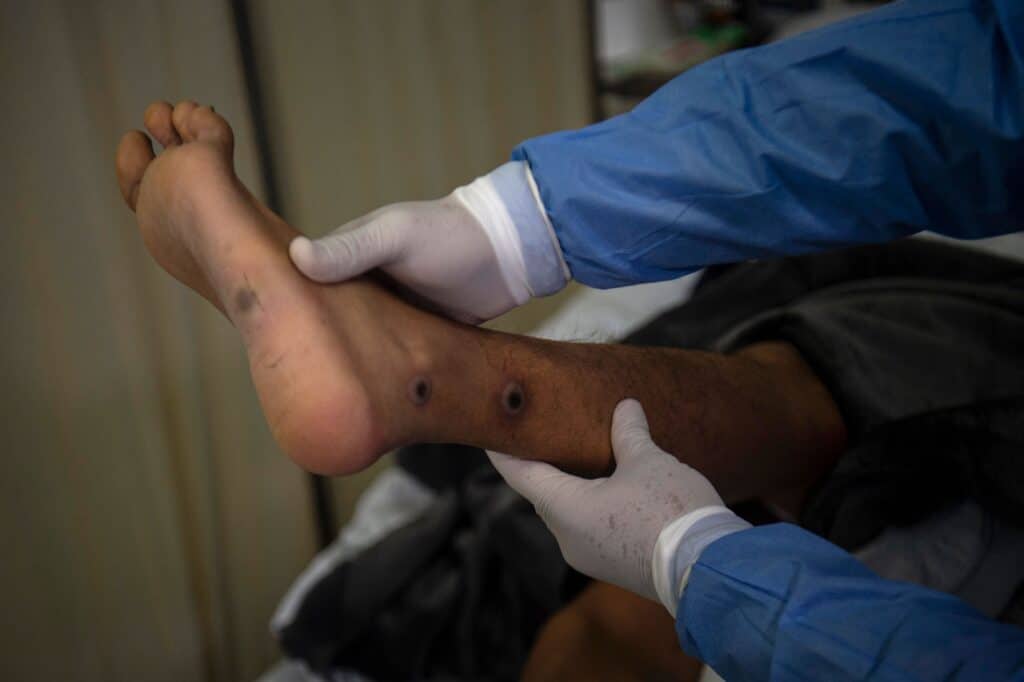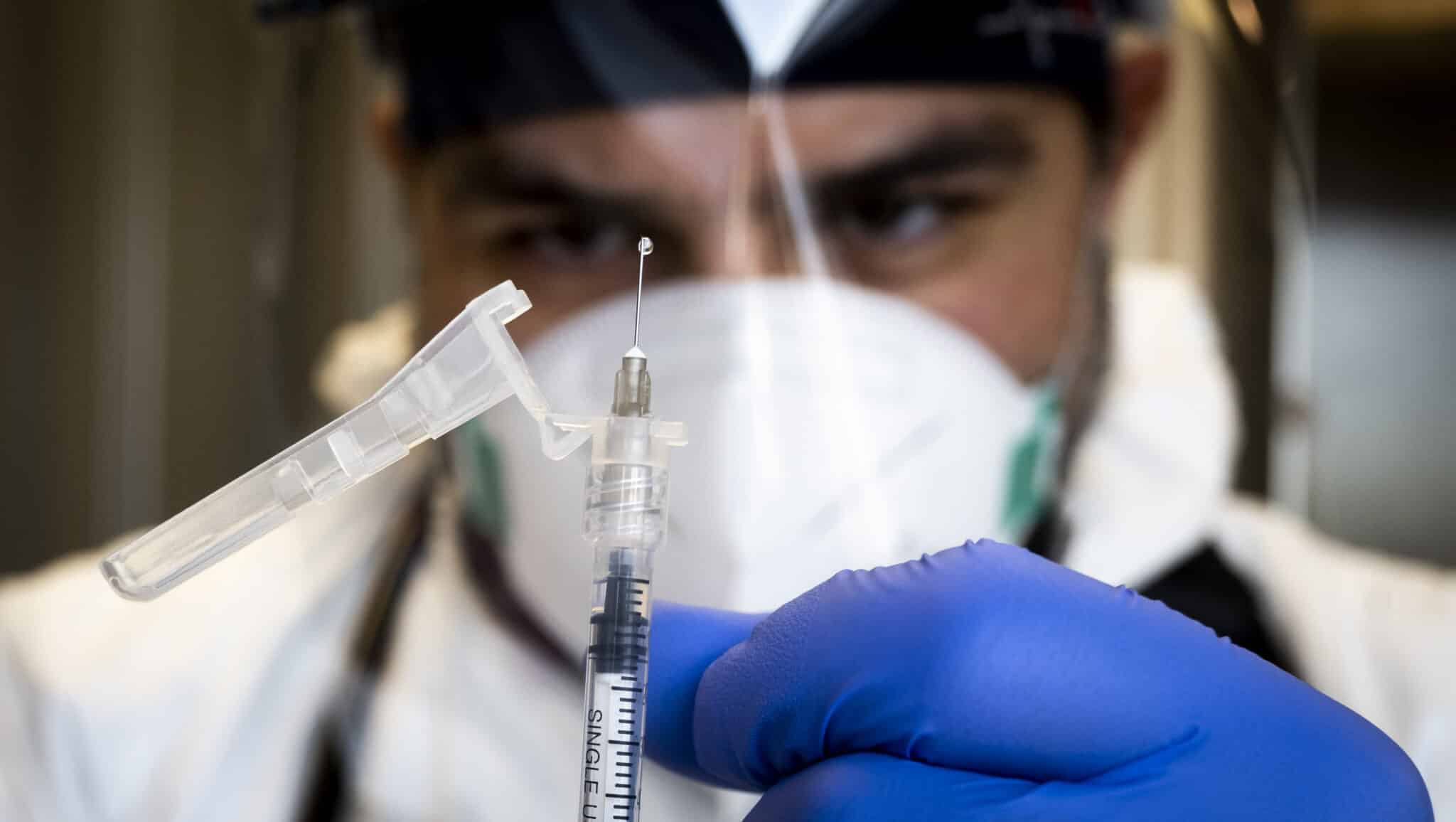The ongoing shortage of the monkeypox vaccine has undermined efforts to curb the outbreak. (Paul Bersebach/MediaNews Group/Orange County Register via Getty Images)
The sole supplier of the world’s monkeypox vaccine has struck a deal with an American manufacturer to increase supplies of the much-needed shot.
Bavarian Nordic, a small Danish company, will hand over the production of millions of vaccines to Grand River Aseptic Manufacturing (GRAM), a Michigan-based biotechnology company that makes injectable drugs.
Two weeks after the White House declared monkeypox a national health emergency, the Biden administration announced on 18 August GRAM will fill and finish 2.5 million doses of the vaccine.
The Department of Health and Human Services said the deal will allow Bavarian Nordic to speed up delivery of the 5.5 million vials the US has ordered to try to tackle rising case numbers.
“This announcement, which is the result of extensive coordination between [the Biomedical Advance Research and Development Authority], Bavarian Nordic, and GRAM, will help bolster our current monkeypox response and enhance our smallpox preparedness,” said assistant secretary for Preparedness and Response Dawn O’Connell.
“We look forward to continuing to work with our partners to ensure successful production ramp up and ultimately delivery of additional vaccine doses to those in need sooner.”
Sharing the complex technology needed to make the vaccine with GRAM has already begun, with officials hoping this can be achieved in three months – rather than the standard nine to allow for production by the end of this year.

Bavarian Nordic’s jab – known as Imvanex in Europe, Jynneos in the US and Imvamune in Canada – remains the only widely available vaccine approved by drug regulators in the US and Europe.
Health authorities don’t have many other options. Other drugs have dangerous side effects, while the rollout of Japan’s LC16 KMB has been slowed down by production issues.
There are around 16 million vaccine doses of Jynneos available right now globally, according to World Health Organisation estimates.
Most of the doses are in their bulk form, meaning they have to be taken out of their frozen bags, and put into vials in a months-long process known as a “fill and finish”.
Monkeypox vaccines not reaching Africa
Nearly all ready-to-go vaccines have been snapped up by wealthy nations, however, leaving middle and low-income countries with next to none.
Africa, where the virus has been endemic for years, hasn’t received a single vaccine since the outbreak began in May.
Exacerbating the monkeypox vaccine shortage even further, Bavarian Nordic closed down a key bulk manufacturing facility in Spring to funnel resources into other vaccines.
The assembly isn’t expected to re-open until later this year at the earliest – even then, no doses are expected to leave the production plant until early 2023.
At least 41,000 people have been infected with monkeypox, according to the Centers for Disease Control and Infection.
But Bavarian Nordic has resisted calls from campaigners to make the vaccine public. Patent laws mean other drug-makers cannot help manufacture the jab themselves, forcing the world to solely rely on Bavarian Nordic’s facilities.
Global Justice Now, a social justice group, told PinkNews that the deal sounds better on paper than it is in practice.
“This deal is an admission that medicines monopolies don’t work, but it doesn’t go anywhere near far enough to tackle the global monkeypox outbreak,” said Global Justice Now pharmaceutical campaigner Tim Bierley.
“These doses to be ‘filled and finished’ have been entirely bought up by the US, which means that, as things stand, this deal does nothing to protect people anywhere else in the world.
“Given the continent of Africa has seen more monkeypox deaths than anywhere else, this looks like just another case of one country hoarding all the vaccines and leaving the rest of the world to ransom.
“But countries in the global south cannot, and should not, have to rely on the ‘charity’ of firms and countries in the global north to be able to get their hands on these medicines.”
Bierley said the solution to unequal vaccine access is a simple one – Bavarian Nordic must share its vaccine know-how.
“Just as we saw with COVID-19, this slow and deeply unequal vaccine roll-out shows the urgent need to transform a pharmaceutical system that rewards the hoarding of scientific knowledge with enormous profits, rather than collective effort to save lives.”
